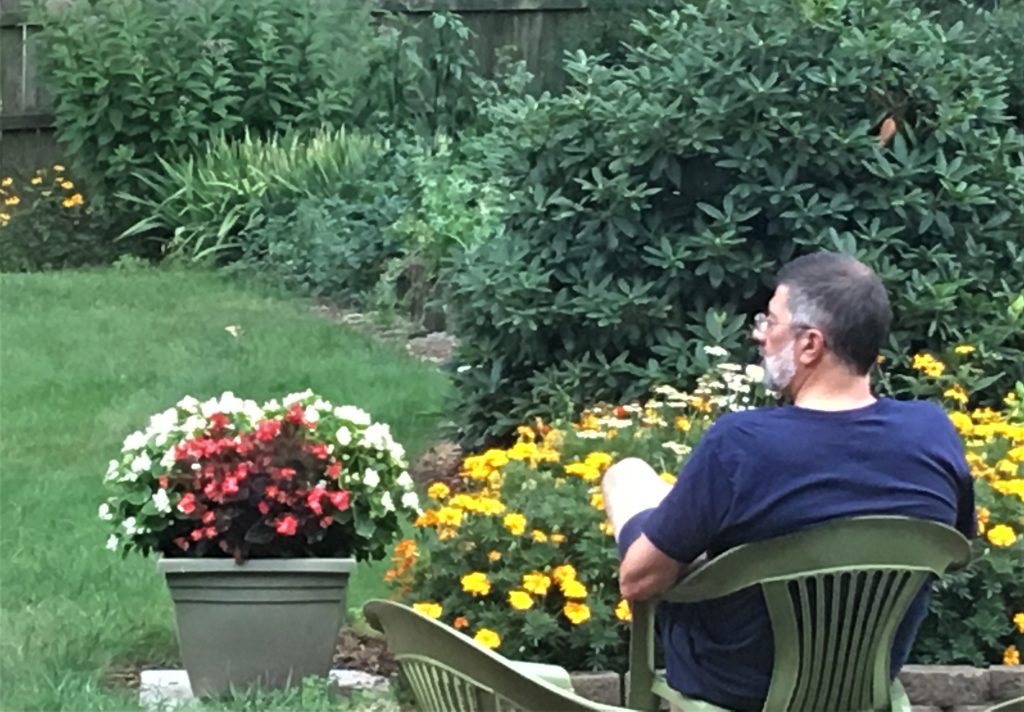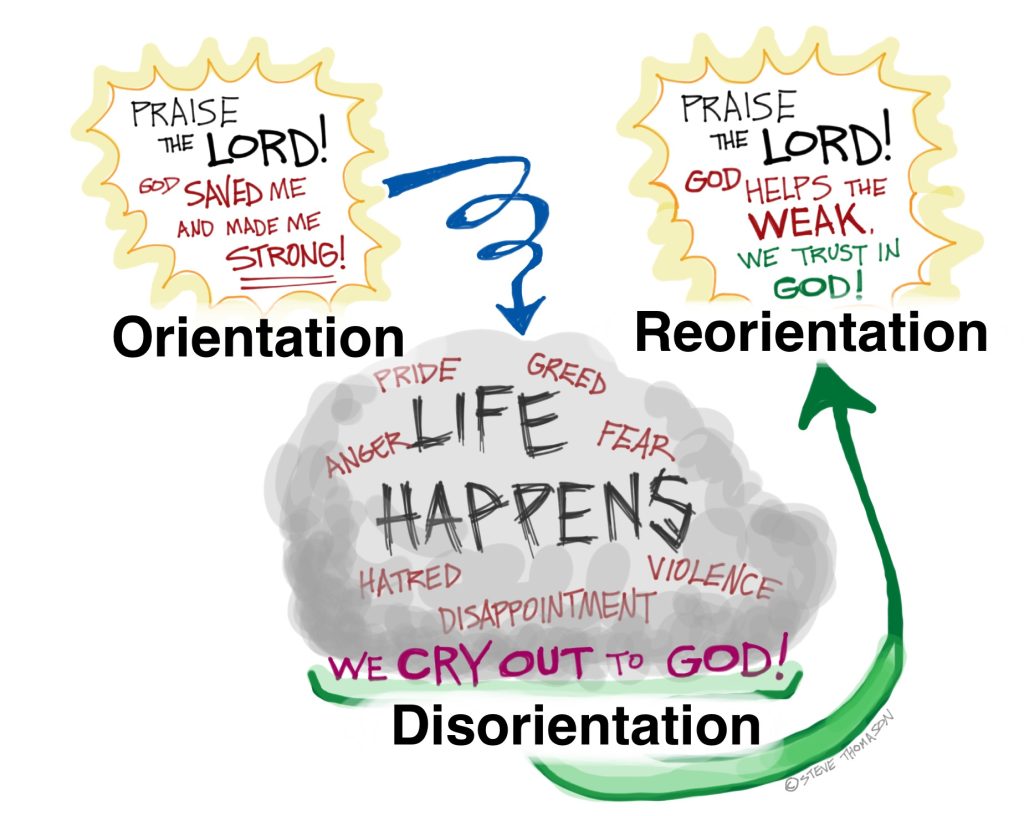
Then Jesus said to His disciples, “If anyone desires to come after Me, let him deny himself, and take up his cross, and follow Me.” – Matthew 16:24
I have been crucified with Christ. It is no longer I who live, but Christ who lives in me. And the life I now live in the flesh I live by faith in the Son of God, who loved me and gave himself for me. – Galatians 2:20
If you suffer for doing good and you endure it, this is commendable before God. For to this you were called, because Christ also suffered for you, leaving you an example, that you should follow in His footsteps. – 1 Peter 2:20-21
His divine power has given us everything we need for life and godliness through the knowledge of Him who called us by His own glory and excellence. Through these He has given us His precious and magnificent promises, so that through them you may become partakers of the divine nature, now that you have escaped the corruption in the world caused by evil desires. For this very reason, make every effort to add to your faith virtue; and to virtue, knowledge; and to knowledge, self-control; and to self-control, perseverance; and to perseverance, godliness; and to godliness, brotherly kindness; and to brotherly kindness, love. For if you possess these qualities and continue to grow in them, they will keep you from being ineffective and unproductive in your knowledge of our Lord Jesus Christ. But whoever lacks these traits is nearsighted to the point of blindness, having forgotten that he has been cleansed from his past sins. Therefore, brothers, strive to make your calling and election sure. For if you practice these things you will never stumble. – 2 Peter 1:3-10
Now the Lord is the Spirit; and where the Spirit of the Lord is, there is liberty. But we all, with unveiled face, beholding as in a mirror the glory of the Lord, are being transformed into the same image from glory to glory, just as by the Spirit of the Lord. – 2 Corinthians 3:17-18
I’m an avid reader of non-fiction. Sometimes, oftentimes, that has included volumes of Christian self-help books. Self-improvement is very much the goal of New Year’s resolutions, and I am still in the thick of those made a few weeks back.
Then, last week, I read a chapter on improvement in Karen Swallow Prior‘s book, The Evangelical Imagination, and it has totally upended my whole understanding of improving my life – physically, emotionally, and spiritually. Reading Prior’s book (and this chapter, at the moment) is a wake-up call on how we have taken on culture’s trappings, language, and ethics. Weaving them into our faith, as if they belonged. Such that we as Christians are merely improved humans, rather than the new creations God has made us.

I realize my focus of late has been more self-improvement than sanctification. Why would we want to improve on the self, anyway, since Christ has told us to deny self? It’s not self that I want improved. It’s so much more than that. Sanctification is defined as being set apart. When we come to faith in Christ, we become His, set apart for Himself and for His service. Although we find in Scripture the command to work out our salvation, we must understand that we are not improving on what has already been done for us. Rather, we do what is needful to truly know Christ and to infuse every part of our being with His character. To what end? For His pleasure, for our good, and for the sake of those He places in our lives. For love’s sake.
This kind of work, discipline, habit formation is daily and full of God-shaped challenge. However, the goal is not to improve ourselves, but to become ever more His such that we manifest the very likeness of Christ in our relationships and circumstances. As believers, we aren’t just nice people…we are meant to be warriors on the ready for whatever confronts us or those around us, confident of His power at work in us.

God calls us often to show up as peacemakers, too. To die to self, to refuse to think ill of others, to forgive (over and over at times), and to seek forgiveness when we’ve wronged someone.
Jesus prayed for us to be one with Him and with each other. To extend the fruit of the Spirit He means for the good of those around us. To confront our sin and to put down our idols. Self-improvement is by its nature self-focused…unless…
You Are Set Free from Self-Improvement – Lydia Brownback
Podcast: The False Messages Facing Women Today (Lydia Brownback)
Unless that working out we’re doing is to benefit others, even more than we are benefited. A self-abandonment. We have someone very close to us who has done a huge work in recent months to be as healthy as he can be. In all areas of his life. Some would call that a massive self-improvement effort, but I know him and I know his heart. He has taken a hard look at his life and made some decisions to stretch himself to love God and his family in deeper ways…rather than escaping into self-serving and escape when his daily work is done. Now could he fall into a lesser pursuit of self-improvement? Sure…we all can, but part of his effort is that sorting out of living the life of a new creation with access to the unfathomable grace, love, and power of God.

I’m just at the start of figuring out this whole “dying to self and living to God” process. It’s so easy for me to choose comfort over sacrifice. To choose my preferences over His. How gracious the Lord is! He celebrates our small victories and does not condemn us when we falter. We are His, indwelt by His Spirit, with Christ Jesus interceding for us in the Heavenlies in this very moment.
This life is not a self-improvement journey for us as believers. It is a practicing the ways of Christ life. Immersing ourselves in His Word to know Him at a heart level, spending time with Him and others, believing Him to live His life through us, ruthlessly dealing with sin and deception in our lives, and then practicing (working out our salvation) His ways until they become our ways.
What joy! And freedom we discover in this Jesus life…a freedom and a hope that is only ours through Christ’s presence and power. Fleshing out His character in our frail lives, being made more and more like Him, as we work out our salvation, in truly knowing Him and being transformed into His likeness across our lifespan.
Let me close with the beautiful commentary below from Bibleref.com:
“In the previous two verses (2 Peter 1:3-4), Peter summarized the enormous benefit we have received in knowing God through faith in Christ. We have been equipped to follow the example of Jesus’ glory and goodness. We’re not missing anything we need to lead the life He calls us to. More, through faith in Jesus, we have been granted the right to participate, right now, in God’s nature. We can partner with Christ in fulfilling God’s purpose on earth. We have been freed from the corruption of sin.
All of that sounds fantastic, but what does it mean for us today? Why does it seem that many Christians are so far away from participating in God’s nature, not living with Christ’s purpose, joy, and love? Why do some continue to live in the sin from whose corruption we’ve supposedly been freed?
This verse gives us a clue. God has given us all we need to live like Jesus, but now we must actually use those gifts. And that means work. Before we had received God’s gift of grace, we lacked both the ability and the desire to live in Jesus’ glory and goodness. Now that we have been empowered to do so, we must “make every effort” to add the following qualities [2 Peter 1:3-10] to, or “alongside,” our faith.
In other words, we must begin to live as if what we believe is really true.
By faith, we came to Christ. Now, with Christ’s power, we must work to add goodness to our faith, and to add knowledge to our goodness. The next two verses (vv. 6 & 7) will explore additional ideas about the chain of traits we as Christians should work to build into our lives.” – Bibleref.com
#2. Add to Your Faith Goodness – (2 Peter 1:5-11) – 2 Peter & Jude Bible Studies – Ralph F. Wilson

Practicing the Way website- John Mark Comer
Growth Is Not the Goal: Why We Need Habits of Grace – David Mathis, Desiring God
How Christian Is Self-Improvement – Marshall Segal, Desiring God
















